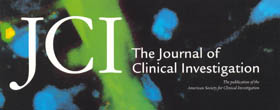Circulating HIV-Specific Interleukin-21+CD4+ T Cells Repre sent Peripheral Tfh Cells with Antigen-Dependent Helper Functions
sent Peripheral Tfh Cells with Antigen-Dependent Helper Functions
Schultz BT, Teigler JE, Pissani F, Oster AF, Kranias G, Alter G, Marovich M, Eller MA, Dittmer U, Robb ML, Kim JH, Michael NL, Bolton D, Streeck H. Immunity. 2016 Jan 19;44(1):167-78.
T follicular helper (Tfh) cells are vital to inducing antibody formation in B cells within the germinal center and creating long lasting protection. Due to the difficulty and invasiveness of collecting bona fide Tfh cells from lymph nodes, researchers have turned their attention to a circulating subset of memory CD4 T cells that have been shown to have similar qualities to lymphoid Tfh cells. These peripheral Tfh (pTfh) cells have been characterized in several studies; however, there are many discrepancies as to which phenotypic markers should be used to identify them. In this study, we hypothesized that pTfh cells can be more accurately defined based on their functionality and show that CD4+ T cells that produce interleukin(IL)-21 are most phenotypically, functionally, and transcriptionally related to lymphoid Tfh cells and thus represent pTfh cells. We demonstrate that HIV antigen-specific pTfh cells are able to promote CD8+ T cells responses as well as differentially promote B cell maturation and class switching. Furthermore, we analyzed samples from the modestly successful RV144 (“Thai”) HIV vaccine trial and find that it had more antigen-specific IL-21+CD4+ T cell responses than other, less effective, HIV vaccine trials. Overall, IL-21+CD4+ T cells represent circulating Tfh cells which will have a key role in HIV vaccine design.
Expansion of HIV-specific T follicular helper cells in chronic HIV infection.
Lindqvist M, van Lunzen J, Soghoian DZ, Kuhl BD, Ranasinghe S, Kranias G, Flanders MD, Cutler S, Yudanin N, Muller MI, Davis I, Farber D, Hartjen P, Haag F, Alter G, Schulze zur Wiesch J, Streeck H. J Clin Invest. 2012 Sep 4;122(9):3271-80.
HIV targets CD4 T cells, which are required for the induction of high-affinity antibody responses and the formation of long-lived B cell memory. The depletion of antigen-specific CD4 T cells during HIV infection is therefore believed to impede the development of protective B cell immunity. Although several different HIV-related B cell dysfunctions have been described, the role of CD4 T follicular helper (TFH) cells in HIV infection remains unknown. Here, we assessed HIV-specific TFH responses in the lymph nodes of treatment-naive and antiretroviral-treated HIV-infected individuals. Strikingly, both the bulk TFH and HIV-specific TFH cell populations were significantly expanded in chronic HIV infection and were highly associated with viremia. In particular, GAG-specific TFH cells were detected at significantly higher levels in the lymph nodes compared with those of GP120-specific TFH cells and showed preferential secretion of the helper cytokine IL-21. In addition, TFH cell expansion was associated with an increase of germinal center B cells and plasma cells as well as IgG1 hypersecretion. Thus, our study suggests that high levels of HIV viremia drive the expansion of TFH cells, which in turn leads to perturbations of B cell differentiation, resulting in dysregulated antibody production.
